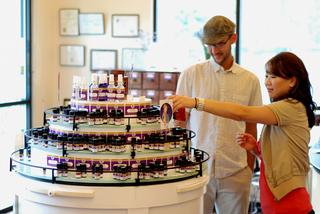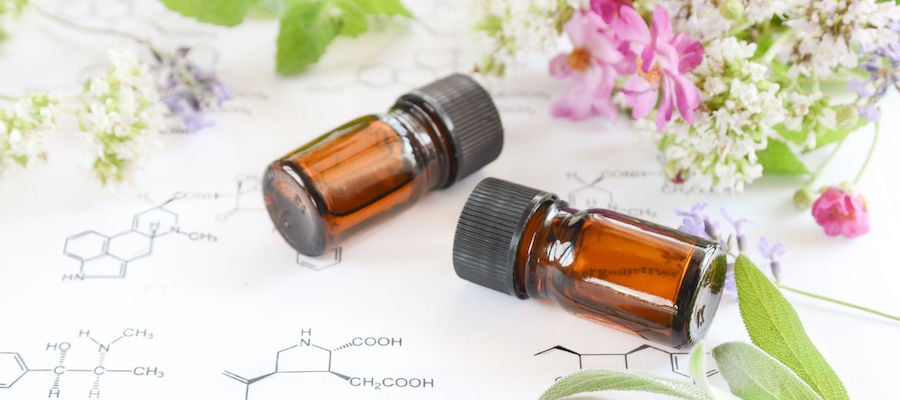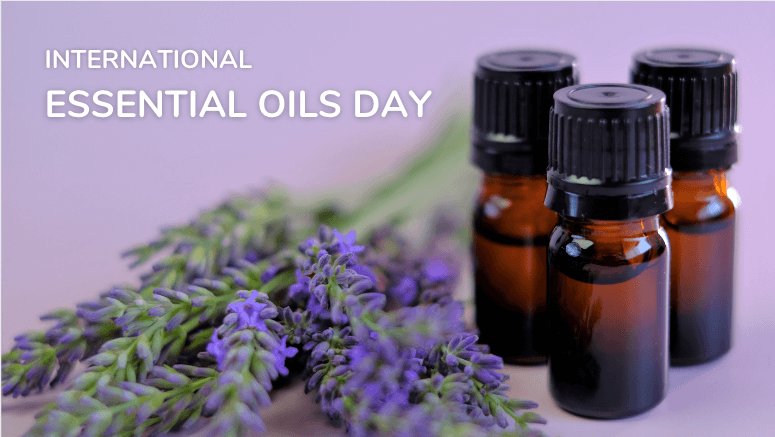Just like wine, a number of factors affect the quality of aromatherapy essential oil. So, it's really important to find an essential oil supplier you trust.
By Dorene Petersen and Erika Yigzaw
We sell organic and sustainably wildcrafted essential oils at the Apothecary Shoppe College Store, and we hope we're your choice when you go essential oil shopping. But, no matter where you choose to buy your essential oils, the factors that affect the quality of your oils are the same, including:
- Where the plant was grown
- What part of the plant was used
- How it was grown
- What the climate was like
- How it was harvested
- When it was harvested
- How it was produced
- How it was stored following production
The quality of any essential oil for aromatherapy can be compromised if any one of these production steps is not optimally carried out. And, as anyone who has been to one of our distillation workshops knows, distillation is both an art and a science!
How can you ensure the essential oils you buy are of a suitable quality?
Follow these 6 tips when sourcing your aromatherapy essential oils, where you are buying them for personal use or clinical aromatherapy:
1. Know your supplier.
Start by developing a relationship with a supplier you can trust. Try to deal with suppliers either who distill their own material or who deal directly with reputable distillers. If you are purchasing in bulk (a pound at a time of each essential oil) suppliers usually will provide a small sample of the oil for you to check before purchasing larger quantities. If you are purchasing smaller quantities, buy just a small amount first to check the quality.
2. Use the Latin names.
Order by the Latin name, and always check labels for the correct botanical name. It is a huge red flag for an oil to only have a common name.
3. Perform your own tests.
Make sure the oil is pure and not extended or diluted by using the organoleptic testing techniques. There are multiple common diluents and extenders, some of which are toxic and its too big a topic to cover fully here but you can educate your olfactory senses: Smell, taste, feel, and look at oils from many different samples and sources to gain experience. If you are going to be buying a lot of essential oils, say for a massage practice or to make holistic health products, consider taking a class that teaches you how to evaluate oils in depth.
4. Do not rely on price as an indicator of quality.
Be aware that a higher price does not necessarily mean a higher quality. It is important to check all oils thoroughly regardless of the price. However, a price that is very low compared to other suppliers may indicate that an oil is not as labeled, is diluted in a base oil, or is otherwise adulterated. Many expensive oils, such as rose and neroli, are sold diluted in a base oil such as sweet almond but are not labeled as diluted.
5. Gas chromatographs.
Gas chromatography (GC), mass spectrometry (MS), and similar additive-revealing techniques can be used to analyze oils. These can be particularly helpful when purchasing large quantities. However, chemical analysis does not always reveal the presence of adulterants and an experienced technician must carry out the analysis of the MS. Plus, even an great technician has to have a good benchmark oil's GC to compare the GC to. In addition, a GC must be conducted for each batch, so the cost can be very prohibitive for small distillers. The upshot? A GC is not always a guarantee of quality. One test does not replace another. It is best to use all available tests in combination to ensure quality.
6. Organoleptic testing is still the ultimate test.
Build your experience. The very best way to gain experience and familiarity with pure essential oils is to sample as many pure oils and synthetic oils as possible and document the differences. Just like wine, essential oils will have differences and you will have favorites. Aromatherapy can be quite subjective! But knowing your baseline quality rules ensures you're not accidentally inhaling pthalates and some other nasty chemical concoction while you're taking that relaxing bath.
Aromatically yours.





